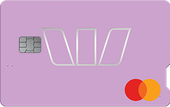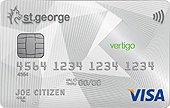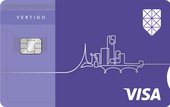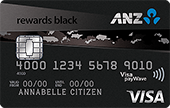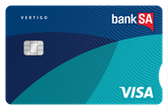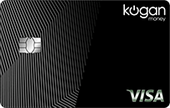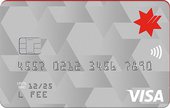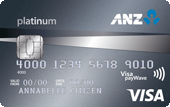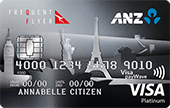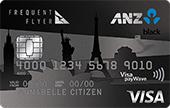
Goodbye points. Hello cash.
What is a cashback credit card?
Cashback credit cards in Australia offer a way to earn money back on your spending, generally with a one-time sign-up cashback bonus for new cardholders or on an ongoing basis as a percentage of your spending.

How would you like your cashback?
Different types of cashback credit cards
Credit card providers offer a range of cashback credit cards, but they don’t all work the same way. Some offer direct cashback into your account, while others may provide reward points that can be converted to cashback. In some cases, the cashback might only apply to certain categories or require a minimum spend.
Here are some common types of cashback credit cards available, to help you decide which one (if any) best suits your needs.
1. Credit cards with gift vouchers or statement credits
Instead of direct cashback to your account, some cards reward your spending with credits that can be redeemed for gift vouchers at various retailers. It is a common feature on premium cards from American Express, Citi, Kogan Money, and other issuers.
2. Credit cards with ongoing cashback on purchases
Although there aren't many to choose from, there is a select few credit cards with cashback as a percentage of your spending. The cashback rate may vary based on the type of purchase or the spending category, such as groceries at supermarkets, fuel, or dining. How much cash you can get back is generally capped, either monthly, annually, or a combination of both.
3. Credit cards with points that can be redeemed for cash
While it is a bit of a workaround, you could earn points on purchases with a rewards credit card and convert them into cash credits on your account or redeem them for gift cards. The flexibility this affords cardholders is appealing. Points can be used to offset the card's annual fee or to pay off some of the account balance.
4. Credit cards with sign-up bonus cashback
The most widely available type of cashback credit card in Australia is one with an introductory cashback offer to attract new customers. Typically the amount of cashback is a fixed amount, requiring the cardholder to spend a certain amount within a specified period of time. In this way, they are much like a sign-up bonus credit card, with cash instead of rewards points. These offers are especially attractive if you already plan to make significant purchases soon after obtaining the card.

Put your card to work.
How to make the most of a cashback credit card
When selecting a cashback credit card, consider the following:
- Choose a cashback structure that suits your needs. Are you looking for some introductory cashback to set off against a large purchase, regular cashback on your day-to-day purchases, or something else? Select a card that fits your financial habits and aims.
- Meet the spending requirements. If the card has cashback as a sign-up bonus, check what the spending target is and make sure you don't have to extend yourself to trigger it.
- Be mindful of excluded transactions. Cash withdrawals (and other cash-like transactions), ATO payments, credit card interest payments, and various fees are typically not eligible.
- Don't forget caps and limits. It's highly likely there will be some limit on how much cashback you can earn. This is usually a fixed dollar amount per month, year, or a combination of both, e.g. $10 per month up to $100 annually.
- Conversion ratio of points to cash. If you choose to earn rewards points that can be converted to statement credits or gift vouchers, how many points will you need per dollar?
- Keep up with repayments. Falling behind on payments may result in losing your cashback rewards. It can also lead you to accumulate debt, attracting a high rate of interest.
While cashback credit cards can be rewarding, it’s important to use them with care. Look out for annual fees, high interest rates, and spending conditions that might reduce the overall value. If you don’t pay off your balance in full, interest charges can quickly outweigh any cashback earned. Depending on how you spend and repay, a low-interest card could help you save on interest, or a rewards card might offer better overall value.

Sarah’s experience with a cashback credit card – smart savings with a few trade-offs
Sarah, a 32-year-old professional, wanted a credit card that could reward her for her regular spending without needing to manage complicated points programs. After researching her options, she chose a cashback credit card that offered 0.5% cashback on eligible purchases. The card was simple to use—cashback was automatically credited to her account each time she earned 1,000 points, which translated to $10. The card had no annual fee for the first 12 months, but from the second year onwards, an $80 annual fee applied. There was also an annual cap of 100,000 points, which equated to a maximum of $1,000 cashback per year.
Sarah typically spent around $2,000 per month on groceries, utilities, fuel, and other everyday expenses. With 0.5% cashback, this gave her roughly $10 back each month, or $120 per year. In the first year, with no annual fee, she gained full value from the cashback. From the second year, however, the $80 fee would reduce her net benefit to $40—still a saving, but less compelling. She also noted that certain transactions, such as government payments, were excluded from earning cashback. And like all credit cards, carrying a balance would attract interest charges, which could quickly cancel out any gains.
Sarah’s experience highlights that cashback credit cards can offer good value, especially for consistent, moderate spenders who pay off their balance in full each month. However, it’s important to look beyond the cashback rate. Consider factors like annual fees, exclusions on eligible purchases, spending caps, and your ability to repay on time. Cashback can be rewarding, but only if the numbers work in your favour.

Cashback rewards insight from a Credit Card Compare expert

David Boyd, co-founder of Credit Card Compare, explains what the main attraction of a credit card that earns cashback is.
Cashback rewards are generally easier to understand than earning rewards points and cash in your bank account. Whether it's putting those funds towards paying down debts, saving up for a holiday, or even just covering some weekly grocery expenses, credit card cashback appeals to consumers looking to keep things simple while still getting a little extra value from their credit card.

Is cashback money free? Not always!
Is credit card cashback taxed in Australia?
In Australia, cashback earned from credit cards used for personal expenses is generally not considered taxable income. The Australian Taxation Office (ATO) treats these rewards as a discount or rebate, rather than assessable income, meaning you don’t need to report them in your tax return. However, the situation changes when credit cards are used for business purposes.
According to the ATO’s Practice Statement PS LA 2004/4 (GA), cashback or other rewards may be taxable if they are received as part of an income-earning activity, there is a business relationship between the cardholder and the reward provider, and the reward is convertible to money’s worth. If these three conditions are met, the cashback may need to be included in your business’s taxable income. Additionally, if you’re claiming a business expense as a tax deduction, any cashback received may need to be deducted from the total expense claimed. Speaking with an accountant or tax professional may be helpful if you earn cashback through a business credit card.

What Australians think about using cashback credit cards
Sentiment among Australians is generally positive towards cashback credit card offers.
Talking about the value they get from credit card offers, one Redditor mentioned that they:
"Get about $2000 in gift cards from churning credit cards each year and it costs me nothing."
Another revealed:
"Each year my wife and I spend enough on the credit card to get a few thousand dollars in gift cards, which more than covers gifts for birthdays, Christmas, anniversaries, etc."
One commenter put it this way:
"If you can get 1-5 cents off every single dollar you spend, why wouldn't you?"

An expert's opinion on cashback offers

Andrew Boyd, co-founder of Credit Card Compare, explains the difference in cashback offers.
What you want and what you can get are two very different things. There aren't many credit cards in Australia with cashback on every purchase, and even fewer with no caps. Since points can usually be redeemed for vouchers or gift cards, which is practically the same as cash, cards that earn rewards points are basically the same as cashback cards.

Too good to be true?
Are cashback credit cards worth it?
Credit cards that earn cashback are most beneficial if you always pay the balance in full each month to avoid interest charges, spend enough to offset the annual fee and earn meaningful cashback, and prefer simple, flexible rewards over points programs.
Annual fees can eat into your cashback earnings if you're not spending enough. Also, cashback rates in Australia are generally lower than they are in comparable overseas markets, typically ranging from 0.5% to 1%. There's also the risk that the promise of cashback might encourage overspending.
To determine if a cashback card is worth it for you, calculate your typical monthly spend and apply the card's cashback rate to estimate your annual returns. Then, subtract the annual fee from your potential cashback. Compare this net benefit against other card options. For example, if you spend $2,500 monthly on a card offering 1% cashback with a $100 annual fee, you'd earn $300 in cashback but net only $200 after the fee.
Secondary features like airport lounge access or insurance may add more in terms of value, but only if you actually use them.



